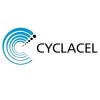
PK/Efficacy Bridging Study of ASTX727 in Chinese Subjects With Myelodysplastic Syndromes
Myelodysplastic SyndromesThis is an Open-Label, Crossover, Pharmacokinetic and Efficacy Bridging Study of Oral ASTX727 versus IV Decitabine in Chinese Subjects with Myelodysplastic Syndromes

Itacitinib With High-dose Posttransplantation Cyclophosphamide in Older Patients
LeukemiaAcute8 moreThis research is being done to learn whether drug called itacitinib, which is a novel inflammation- and immune-lowering drug (immunosuppressant), can be given before and after non-myeloablative peripheral blood stem cell transplantation (PBSCT; also known as a 'mini' transplant) to help prevent certain complications such as cytokine release syndrome (CRS) for patients with blood cancers, using peripheral blood from a relative. The investigators will also examine if by using itacitinib the investigators can reduce the duration of MMF (other immune suppressive drug administration posttransplant).

A Pilot Study to Evaluate the Feasibility of Post-Hematopoietic Stem Cell Transplant Prophylaxis...
Acute Myeloid LeukemiaMyelodysplastic Syndromes5 moreThe purpose of this study is to examine if it is feasible to administer decitabine and filgrastim after allogenic hematopoietic stem cell transplant (HCT) in children and young adults with myelodysplastic syndrome, acute myeloid leukemia and related myeloid disorders, and if the treatment is effective in preventing relapse after HCT. The names of the study drugs involved in this study are: Decitabine (a nucleoside metabolic inhibitor) Filgrastim (a recombinant granulocyte colony-stimulating factor (G-CSF)

A Phase 1, Open-Label, Sequential Cross-over, Bioavailability/Bioequivalence Study to Compare the...
LeukemiaMyelodysplastic Syndromes1 moreTo compare an investigational oral form of the drug cladribine to the FDA approved form of the drug when it is given by vein (IV).

A Study of TSC-100 and TSC-101 in AML, ALL and MDS Patients Undergoing Haploidentical Donor Transplantation...
AMLMyelodysplastic Syndromes2 moreThis is a multi-center, non-randomized, concurrent controlled, multi-arm, Phase 1 interventional, open-label, biologic assignment-based umbrella study evaluating the feasibility, safety and preliminary efficacy of an escalating dose regimen of up to 2 doses of TSC-100 and TSC-101 in patients with AML, MDS, or ALL following HCT from a haploidentical donor.

Study Evaluating Combination of Luspatercept in LR-MDS Without RS Having Failed or Being Ineligible...
MDSMyelodysplastic SyndromesStudy of the combination of luspatercept in low-risk myelodysplastic syndrom (LR-MDS) without ring sideroblasts (RS) having failed or being ineligible to ESA

AB8939 in Patients With Relapsed/Refractory Acute Myeloid Leukemia
Acute Myeloid Leukemia RefractoryAcute Myeloid Leukemia2 moreThe primary objective is to define the safety and tolerability of AB8939 in patients with AML by determining the dose-limiting toxicities, the maximum tolerated dose, and the recommended dose for dose expansion study.

A Study to Investigate Fadraciclib (CYC065), in Subjects With Leukemia or Myelodysplastic Syndrome...
LeukemiaMyelodysplastic Syndrome(MDS)This is a 2-part, phase 1/2, open-label, multicenter study designed to evaluate the safety and efficacy of fadraciclib (formerly CYC065) administered orally BID. This study consists of Phase 1 and Phase 2 components in subjects with Leukemia or Myelodysplastic syndrome (MDS) who have progressed despite having standard therapy or for which no standard therapy exists.

Highest Dose of Uproleselan in Combination With Fludarabine and Cytarabine for Patients With Acute...
Acute Myeloid Leukemia Post Cytotoxic TherapyDown Syndrome7 moreThis phase I trial tests the safety, side effects, and best dose of uproleselan in combination with fludarabine and cytarabine in treating patients with acute myeloid leukemia, myelodysplastic syndrome or mixed phenotype acute leukemia that has come back (relapsed) or does not respond to treatment (refractory) and that expresses E-selectin ligand on the cell membrane. Uproleselan binds to E-selectin expressed on endothelial cells of the bone marrow and prevents their interaction with selectin-E ligand-expressing cancer cells. This may prevent leukemia cells from being sequestered in the bone marrow niche and escaping the effect of chemotherapy. Chemotherapy drugs, such as fludarabine and cytarabine, work in different ways to stop the growth of cancer cells, either by killing the cells, by stopping them from dividing, or by stopping them from spreading. Giving uproleselan in combination with fludarabine and cytarabine may enhance their activity.

BMS-986253 in Myelodysplastic Syndromes
Myelodysplastic SyndromesBackground: The myelodysplastic syndromes (MDS) are a group of bone marrow neoplasms. MDS mostly affect elderly people. The drugs used to treat MDS are not always effective, and the only curative treatment is stem cell transplant. Researchers want to see if a new drug can be used to treat MDS. Objective: To learn if BMS-986253 is a safe and effective treatment for MDS. Eligibility: Adults aged 18 and older with MDS. Design: Participants will be screened with a medical history, medication review, and physical exam. They will answer questions about how well they are able to take care of themselves. Their temperature, blood pressure, breathing rate, and heart rate will be monitored. They will have an electrocardiogram to see how well their heart is working. They will give blood and urine samples. They may have a bone marrow biopsy. Participants will be assigned to a specific group. They will receive either BMS-986253 alone or in combination with DNA methyltransferase inhibitors (DNMTi). Treatment will be given in 28-day cycles. Participants will get BMS-986253 as an infusion on days 1 and 15 of each cycle. Some participants also will take oral DNMTi on days 2-6 of each cycle. They will receive treatment until their disease gets worse or they have bad side effects. At study visits, some screening tests will be repeated. Some of the samples that are collected will be used for genetic testing. About 30 days after treatment ends, participants will have a follow-up visit to see how they are doing. After that, follow up will occur via phone every 3-6 months until the study ends. NIH will cover the costs for some travel expenses....
